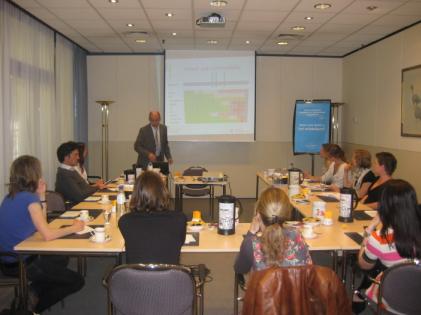By Graham Watt

I keep a cartoon in which a patient tells a flummoxed psychiatrist,
” I have neither illusions nor delusions, Doc. My problem is that I exist day after day in grim reality”.
In seeking to pigeon-hole the patient as a case, the doctor ignores her reality.
Does the same thing happen in multiple morbidity?
Shakespeare first noted, “When troubles come, they come not single spies but in batallions”
That seems true of multiple morbidity in socio-economically deprived areas, defined as the “number, severity and complexity of health and social problems within families”.
Operational definitions of multiple morbidity in research studies, based on counts of conditions, get nowhere near this, largely missing out on social and family aspects.
The problem is heterogenity, something that research tries to eliminate.
How can multiple morbidity research put heterogenity centre stage, so that results inform the majority of patients’ circumstances and not only those meeting case definitions?
Of course, asking the question is the easy part.
By Stewart Mercer

The challenge of multimorbidity – what can we learn from cohort studies?
This one day meeting was organised by Professor Stewart Mercer, Professor of Primary Care Research at the University of Glasgow, who leads a national research programme on multimorbidity in Scotland with the Scottish School of Primary Care.
The morning seminar, which was the inaugural event of the newly established Institute of Health and Well-being at the University of Glasgow, and was chaired by Professor Sally Wyke, welcomed Professor Jane Gunn from Melbourne University, who is Visiting Professor with the Scottish School of Primary Care, who described her work over several years on the DIAMOND primary care cohort on depression and multimorbidity. Professor Martin Fortin from Sherbrooke University in Canada, then described the cohort studies he has recently been involved in setting up in primary care in Canada with Professor Jeannie Haggerty. This was followed by Professor Frances Mair, Head of the Academic Unit of General Practice and Primary Care at the University of Glasgow, who spoke of the treatment burden in multimorbidity, and the need for ‘minimally disruptive medicine.’ Finally, Professor Mercer described work to date on multimorbidity in Scotland, and work in progress in developing the MALT (Multiple and Long-Term conditions) cohort in Scotland.
The afternoon consisted of a workshop to discuss multimorbidity cohort studies further, and the MALT Cohort development. Attendees included experts from Scotland, Ireland, England, as well as our morning speakers. The need for cohort studies on multimorbidity was agreed, based on simple models, and as far as possible based on collaboration between countries. The lack of evidence on multimorbid patients’ views and experiences of health and healthcare was a strong theme of the afternoon. It was agreed that those at the workshop would continue to debate these issues collaboratively.
Overall, this was a very enjoyable and stimulating meeting and we look forward to seeing more guests in the future at our next ‘Glasgow Meeting’ on interventions in multimorbidity in March next year.

University of Glasgow
By François Schellevis

On the occasion of the stay of prof. Martin Fortin in the Netherlands, we organised on April 27th, 2011 a Masterclass on Multimorbidity Research under the auspices of the Dutch Primary Care Research School “CaRe”. CaRe represents the cooperation between the departments of general practice of three Dutch universities and NIVEL, the Netherlands Institute for Health Services Research (www.researchschoolcare.nl). We used this opportunity to bring together researchers working on different multimorbidity issues. It was unique experience with a very fruitful exchange and discussions with prof. Fortin, the “Master”, and with colleagues.
The Masterclass started with a presentation of prof. Fortin about Multimorbidity research in Canada. Research is focused on three themes: conceptual issues (including how to measure multimorbidity), the epidemiology of multimorbidity, and interventions focusing on improving health and health care. After this, four researchers from each CaRe partner presented their work, followed by a discussion with the audience. Mrs. Ruth van Nispen (EMGO Institute for Health and Care Research, VU University Medical Center, Amsterdam) showed how multimorbidity affects the quality of life of severely impaired visually handicapped persons. Mrs. Sil Aarts (CAPHRI/MENS, University of Maastricht) discussed the issue of measuring the physical and mental aspects of quality of life in multimorbid patients in general practice. Mrs. Annemarie Uijen (Department of Primary Care, St Radboud University Medical Center Nijmegen) presented the development of a generic questionnaire to measure continuity of care among multimorbid patients in different care settings. Finally, Mrs. Nathalie Versnel (NIVEL, Utrecht and EMGO Institute for Health and Care Research, VU University Medical Center, Amsterdam) presented the design of a randomized controlled trial to establish the effectiveness of case management in diabetes patients with comorbidity.
All participants were very positive about the Masterclass which provided many new insights into research issues regarding multimorbidity. They considered the setting of a Masterclass with an expert from abroad and discussions in a small group of colleagues working on comparable issues as very fruitful. We were very grateful to prof. Fortin for providing us with this opportunity.







